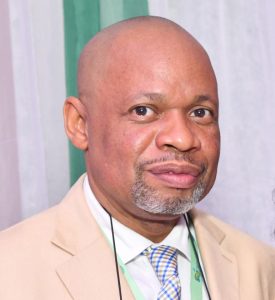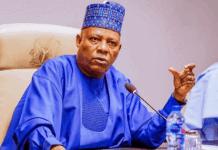ENERGY FORESIGHT with FRANK UZUEGBUNAM
The energy industry is crucial to Nigeria’s economy, contributing significantly to GDP, budget revenues, and foreign exchange earnings. This underscores the importance of maximizing the sector’s potential for sustained economic growth. Despite its economic significance, the industry suffers from a significant gender gap, with men dominating both leadership roles and technical positions. Women’s representation decreases with seniority, indicating systemic barriers to their advancement within the sector.
In commemoration of the International Women’s Day on March 8, 2024, it is imperative to shine a spotlight on the indispensable role of women in Nigeria’s energy industry and the steps needed to foster their inclusion and empowerment.
Despite strides made in recent years, the energy sector remains predominantly male-dominated. Women encounter systemic barriers that impede their progression, resulting in a decline in representation as they climb the corporate ladder. This disparity not only deprives women of equal opportunities but also hampers the industry’s potential for innovation and sustainable development.
However, there is hope on the horizon. Initiatives aimed at bridging the gender gap are gaining momentum, with a focus on encouraging girls to pursue STEM education – the gateway to careers in the energy sector. Collaboration among women within the industry is also pivotal, as it fosters mentorship, builds capacities, and identifies avenues for advancement. Moreover, senior-level sponsorship, employee engagement, and industry involvement are instrumental in fostering a culture of inclusivity and breaking down gender barriers.
Recent employment data from the Nigeria Extractive Industries Transparency Initiative (NEITI) paints a stark picture of gender inequality within the energy sector. With only 18% of the workforce being female, women are vastly underrepresented across all echelons of employment. This glaring gender imbalance underscores the urgent need for concerted efforts to level the playing field and create a more diverse and inclusive workforce.
Research underscores the myriad benefits of gender diversity in the workplace. Companies with more women in leadership positions tend to outperform their peers, thanks to a broader range of perspectives and approaches to problem-solving. Moreover, encouraging women to enter the energy industry can help mitigate the challenges posed by an aging workforce, injecting fresh talent and vitality into the sector.
To achieve meaningful progress, the industry must embrace a culture of diversity and inclusion from the top down. Senior leaders must actively champion diversity efforts, serving as role models and advocates for change. Additionally, providing access to training and tools that raise awareness about diversity issues and break down biases is essential for fostering an inclusive environment where all employees can thrive.
Industry and trade organizations also play a pivotal role in advancing women’s participation in the energy sector. Through targeted initiatives and programs, these organizations can provide women with the support, resources, and networking opportunities needed to succeed in a traditionally male-dominated field.
Women charting new frontiers
Despite challenges, the energy industry in Nigeria is witnessing significant contributions from women leaders who have made substantial impacts in various sectors within the field. These women exemplify resilience, expertise, and leadership in the traditionally male-dominated energy industry, paving the way for greater gender diversity and inclusion. Here are a few of them;
CATHERINE UJU IFEJIKA, Chairman and CEO of Britannia-U, an indigenous integrated company that provides subsurface engineering, exploration and production, and consulting services in the energy sector.
FOLORUNSHO ALAKIJA, Vice-Chairman of Famfa Oil Limited, is recognized as one of the wealthiest black women globally and has successfully navigated legal battles to maintain ownership rights in oil exploration ventures.
WINIFRED AKPANI, the Managing Director of Northwest Petroleum, has played a pivotal role in the exploration, production, and marketing of petroleum products in Nigeria, establishing her company as a major player in the oil and gas sector.
AUDREY JOE-EZIGBO, co-founder of Falcon Corporation Limited, has been instrumental in its expansion and success, offering services such as natural gas distribution and engineering.
NKECHI OBI, founder and CEO of Techno Oil Limited, has led her company to become a prominent player in Nigeria’s oil and gas sector, emphasizing clean cooking initiatives.
ELOHOR AIBONI, Managing Director of Shell Nigeria Exploration & Production Company (SNEPCo), demonstrates leadership in both technical and managerial capacities, with expertise in chemical engineering and environmental management, furthering Shell’s operations in Nigeria.
In conclusion, achieving gender parity in Nigeria’s energy industry is not only a matter of social justice but also a strategic imperative for unlocking the sector’s full potential. By breaking down barriers, promoting women’s inclusion, and fostering a culture of diversity and inclusion, the industry can harness the power of its diverse workforce to drive innovation, spur growth, and ensure sustainable economic development for generations to come.
As the world celebrates International Women’s Day, let us recommit ourselves to empowering women and building a more equitable and prosperous future for all.

























